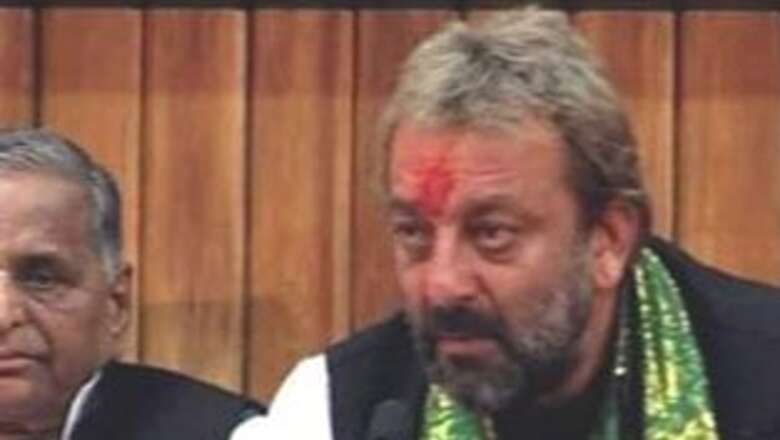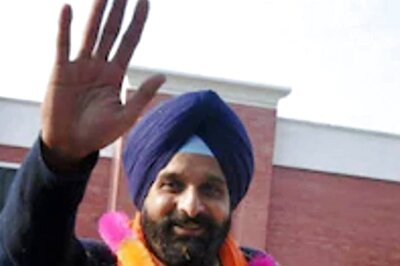
views
New Delhi: Sanjay Dutt, Pappu Yadav, Mohammad Shahabuddin, Suraj Singh, Anand Mohan... all aspiring MPs, all convicted felons and all getting ready to approach the courts to suspend their guilty verdicts so they can contest the General Elections.
The hurdle in their way to the Lok Sabha is Section 8 (3) of the Representation of the People Act of 1951 that stipulates that any person convicted for a crime and sentenced to more than two years of jail term will not run elections till six years after the completion of his sentence.
This can be overcome by approaching the Supreme Court if the conviction was by an anti-terror court, or by a high court in other cases.
And that is precisely the window that politicians like Rashtriya Janata Dal MPs Rajiv Ranjan alias Pappu Yadav and Mohammad Shahabuddin, former union telecom minister Sukhram, Lok Janshakti Party MP Suraj Singh and former Janata Dal-United (JD-U) MP Anand Mohan are looking at, say legal experts.
In doing so, they will cite the case of cricketer-politician Navjot Singh Sidhu, who got a reprieve in 2007 when the Supreme Court suspended his conviction in a case of unintentional killing to enable him to contest the parliamentary by-election in Amritsar. Sidhu won.
The latest to approach the courts is actor Sanjay Dutt, who recently joined the Samajwadi Party and wants to contest from Lucknow.
He approached the Supreme Court this week, seeking parity with Sidhu and asking the court to suspend his six-year conviction by a Mumbai anti-terror court for his involvement in the 1993 Mumbai bombings.
Ironically, Dutt's move came a day after the Supreme Court dismissed the plea of underworld don Babloo Srivastava, convicted by an anti-terror court in Kanpur of murder, who wanted to fight the forthcoming election.
Though this may not bode well for the likes of Dutt and others, legal experts as well as political analysts feel that the apex court ruling favouring Sidhu may have opened the proverbial Pandora's box of troubles.
"It was an incorrect judgement by the Supreme Court. The apex court should not have given him the relief merely to run the election," former Delhi High Court judge, Justice RS Sodhi said.
Indicating that the apex court's favour was an extraordinary one, Sodhi said: "The apex court should be very uniform to every one... I feel the Supreme Court's judgement in Sidhu case is arbitrary and open to criticism."
Senior lawyer Prashant Bhushan echoed the view. "Courts are not reliable and anything can happen," said Bhushan, labelling the judgment in Sidhu's case as "incorrect".
Others feel that such a verdict just to enable a convicted criminal to fight elections does not augur well, particularly when the country is struggling to cleanse the political system and the Election Commission is seeking changes in electoral laws to bar criminals from contesting.
"Hardcore criminals should be prevented from contesting elections in all possible ways to keep the body polity free of criminals," Sudha Pai, a political science professor at the Jawaharlal Nehru University, said.
The politicians likely to ask the courts to suspend their convictions have all been held guilty for murder.
Pappu Yadav, MP from Madhepura, has been convicted and sentenced to life imprisonment for the murder of Left leader Ajit Sarkar.
Shahabuddin stands convicted in seven criminal cases, including murder, with a maximum sentence of life imprisonment.
Anand Mohan too was convicted and awarded death penalty for inciting a mob that lynched to death Gopalganj District Magistrate G Krishnaiyah in 1994.
Suraj Singh, MP from Balia in Bihar, was held guilty for murdering a farmer in 1992.



















Comments
0 comment